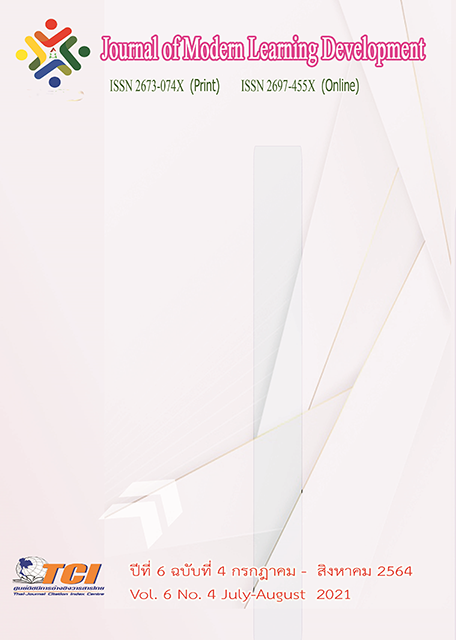An Analysis of the Current Person's Treatment of Depression Based on the Principles of Cittãnupassanã-Satipaṭṭhãna
Main Article Content
Abstract
This research aimed to 1) study the problem of depressed patients in the Mueang Kao community, Nai Mueang sub-district, Mueang Khon Kaen District, Khon Kaen province; 2) to study the principles of Cittããnupassanã-Satipaṭṭhãna based on Buddhist teachings; 3) to analyze the depression treatment in the Muang Kao community according to the principles of Cittããnupassanã-Satipaṭṭhãna. This study was qualitative research carried out by studying the Tripitaka, scriptures, texts, and related Buddhist documents. This study's population was the citizens in the Mueang Kao community, aged more than 20 years. An in-depth interview was used to collect the data. According to the inductive method, the obtained data were compiled and analyzed according to research methodology and presented by descriptive analysis.
The research results were as follows: The depression problems found in the studied patients arise from accumulated stress. The surrounding people do not understand a depressed patient who lacks empathy, guidance, help find a way out of those problems. Their mind is in a state of obsession, anxiety, and pessimism.
The results of the analysis of the principles of Cittããnupassanã-Satipaṭṭhãna indicates that using consciousness to determine and control the mind in the perception of what is happening in the present is a guide for preventing reiterating the matters in the past and future. The patients who practice the mind will be calm, clear, conscious, and happy in the present or continue to use it to get rid of defilement in the highest stage.
The results of treatment of depressed patients according to the principles of Cittããnupassanã-Satipaṭṭhãna indicated that consciousness in the present moment was used with most of the samples that were female with moderate quality of life. The causes of depression were the stress of family responsibility or social obligations and lack of achievement in what they desired. The patients were divided into three groups: (1) patients recovered from depression which was a person with a foundation of devotion in Buddhist teachings, causing persistence, precepts, meditation, and wisdom; (2) patients who do not recover were a Buddhist who has faith, but lack of persistence and meditation; (3) patients who do not recover are a person who lacks faith, lack of persistence, and lack of basic five precepts.
Article Details
References
มหาจุฬาลงกรณราชวิทยาลัย. (2539). พระไตรปิฎกภาษาไทย ฉบับมหาจุฬาลงกรณราชวิทยาลัย.กรุงเทพมหานคร: โรงพิมพ์มหาจุฬาลงกรณราชวิทยาลัย.
มาโนช หล่อตระกูล. (2553). การฆ่าตัวตาย : การรักษาและการป้องกัน. กรุงเทพมหานคร: โครงการตำรารามาธิบดีคณะแพทยศาสตร์โรงพยาบาลรามาธิบดี มหาวิทยาลัยมหิดล.
โรงพยาบาลศรีมหาโพธิ์. (2551). กรมุขภาพจิต กระทรวงสาธารณสุข. แนวทางการดูแลเฝ้าระวังโรคซึมเศร้าระดับจังหวัด. (พิมพ์ครั้งที่ 2). อุบลราชธานี: ศิริธรรมออฟเซ็ท.
WHO. (2017). (off. estimates) disordersMental Health ATLAS. Member State Profile Burden of mental Thailand’s Total population (UN official estimate)


